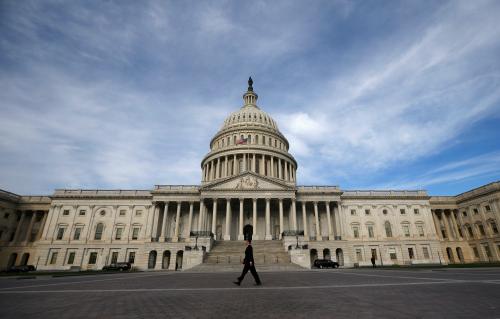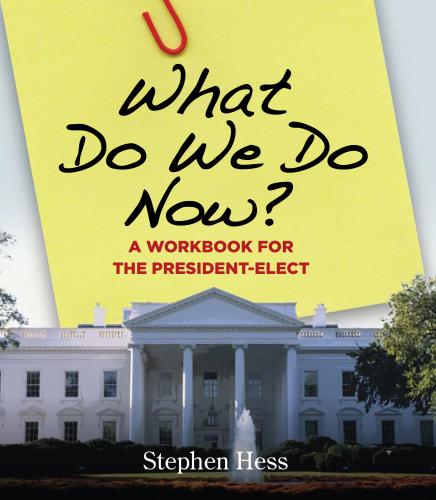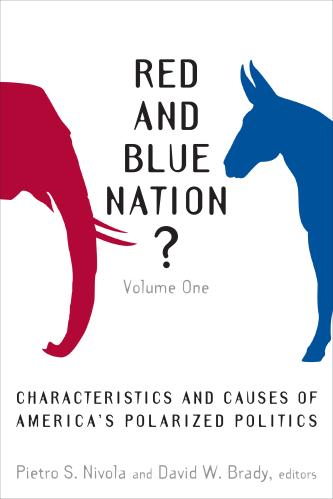He built his brand on his best-selling book, The Art of the Deal. He was tough on Washington gridlock during the 2016 campaign (“They’re all talk, they’re no action, nothing gets done”) and sold himself as the cure. He offered encouraging words that suggested he understood the need for flexibility, the “tug and pull,” in order to reach compromise.
For all that, President Trump has been a singular bust as a negotiator.
The fault does not lie entirely with him. He’s dealing with congressional Republicans who are riven by internal divisions, trapped by a fantasy “repeal-and-replace” campaign slogan and, for the most part, wedded to the view that bipartisanship is for sissies.
On the other hand, Trump has shown zero ability to corral his own party or lead it in a mutally agreed-upon direction. His own quirks and deficits, meanwhile, have led him to violate many of what the American Political Science Association considers fundamental principles of successful political negotiation—and to make up his own, such as reportedly coaching his trade chief to make South Korea think he’s “crazy.” Beyond that, he is an unreliable partner without a knowledge base or clear goals—core problems illuminated by the drive to repeal the Affordable Care Act.
As president, instead of starting off with a potentially bipartisan project such as infrastructure, Trump went along with House Speaker Paul Ryan and Senate Majority Leader Mitch McConnell, who wanted to immediately make good on their seven-year Obamacare repeal pledge. Yet within the GOP there was no consensus on a plan to replace the law. In fact there was no consensus within Trump himself. As a candidate and president-elect, he had adopted his party’s repeal rhetoric—and also repeatedly promised affordable, universal coverage. If his Republican allies were surprised when he called their bill “mean,” they shouldn’t have been.
After the latest fail on repeal, Trump said—spuriously—that “we have the votes” to kill Obamacare and will vote on it in “January, February or March.” But he also said that until then, “I’m also going to meet with Democrats and I will see if I can get a health care plan that’s even better. So I will negotiate with Democrats.”
This is not reassuring for anyone. For Republicans, it sounds especially ominous. The first time Trump negotiated with Democrats, they came up with a sudden deal to keep the government funded, raise the debt ceiling and approve hurricane aid. Republicans were not only out of that loop, from their perspective the purported master negotiator gave away the store. And in fact, while one ostensible rationale was to clear the decks for a September push on tax reform, with Trump’s blessing the month was consumed by yet another failed attempt to repeal the ACA.
As the GOP turns to a tax overhaul, the same problems are arising. There are divisions within the party, and there is tension over Trump’s repeated suggestions that he’ll negotiate with Democrats. Also missing are important negotiation tools that have helped doom the ACA repeal so far:
- A trusted source of information. This is usually the nonpartisan Congressional Budget Office, but though it’s now led by their handpicked economist, key Republicans have been on a tear to discredit its work and try to eliminate requirements for a CBO “score” going forward. CBO projections of lost coverage and rising consumer costs have been huge, possibly decisive factors in the failed repeal drive.
- A pressing deadline and penalties if they blow it. Republicans want to change the tax code and repeal Obamacare, and if they succeed, their political base and donors will be happy. But there would be costs as well. Millions could lose coverage if the health law is repealed, and a majority of the public opposes repeal. Based on current tax proposals, meanwhile, Republicans likely would have to defend increasing the national debt in order to cut taxes for the wealthy. The status quo in both cases might carry fewer consequences.
- Privacy. This has been an impossible dream in the Trump era. This administration, White House and Congress may be the leakiest ever. On top of that, Trump’s incessant tweeting and talking are a vivid window on his thinking, which is often contradictory and jumbled. Badly timed, too, such as when he tweeted “NO!” to a Puerto Rican “bailout” just as negotiators from both parties were working out an agreement on Puerto Rican debt.
- Trust and familiarity among the players. Trump was new to government, and he surrounded himself with many people like him, including unqualified friends and relatives. His campaign made clear he knew little about policy and was disinclined to study up. He also showed he had no qualms about being cruel, and would turn on allies and rivals alike in a nanosecond. Perhaps most significant to his negotiating failures, he saw the election and now sees the presidency as a zero sum game: He wins, period.
In business negotiations, this has a certain logic. You bluster and posture and aim for the outright win—the money, the property, the rights, the lawsuit that buries the other side. In politics, campaigns and headline wars offer the same clarity: somebody wins, somebody loses.
Perhaps this is why the Trump administration is undermining the ACA in every way possible, from threatening to stop paying subsidies, to shrinking enrollment windows, advertising and outreach, to depriving Oklahoma of a waiver it sought to stabilize its insurance market. If Obamacare implodes, perhaps Trump believes he’ll be in a stronger negotiating position.
If that’s a strategy, it’s highly questionable. Polling shows most voters would blame Trump and his party if the ACA starts to collapse. And if it does, there’s still no guarantee that they can achieve repeal-and-replace on their terms.
At this point in their first years, other presidents could point to major achievements to fulfill campaign promises, such as George W. Bush’s June 2001 tax cut and Barack Obama’s February 2009 economic recovery act. Trump has yet to win a significant legislative victory and now is associated with failing, again and again, on health care.
To paraphrase the president, he’s going to lose so much, he’s going to get tired of losing. At that point maybe he’ll decide it’s time to learn from the past, and get serious about negotiations.
Jill Lawrence, a member of the USA TODAY editorial board, is commentary editor of USA TODAY and a columnist for the Opinion section. Her 2017 book about successful congressional negotiations, The Art of the Political Deal, was adapted from reporting she did for Brookings.










Commentary
Who could have known negotiating would be so complicated? Obviously not President Trump.
October 3, 2017